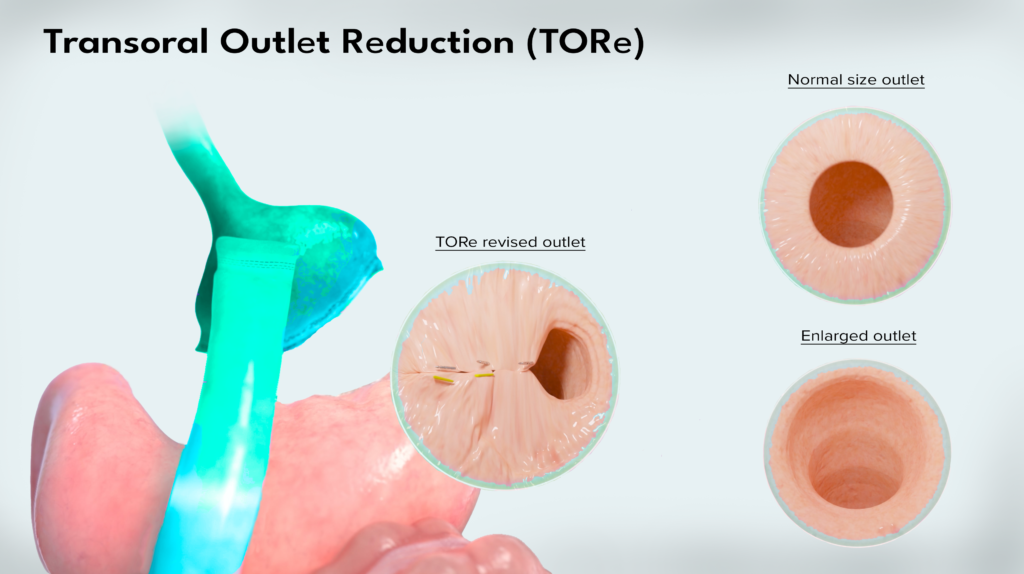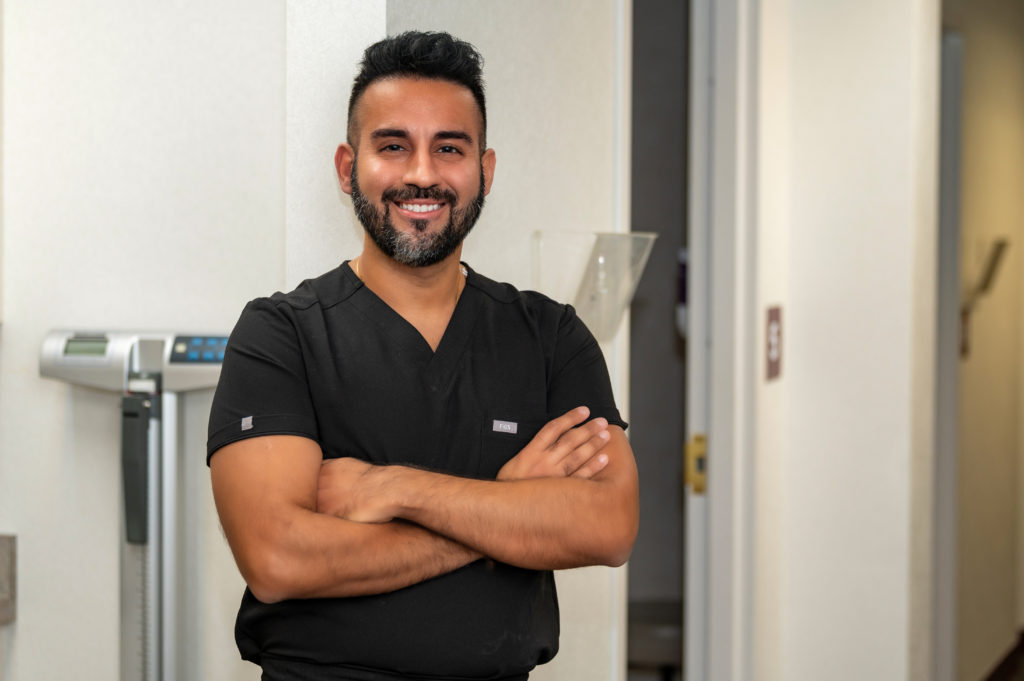Standard bariatric surgery including gastric bypass and sleeve gastrectomy do produce significant weight loss reduction. However, patients will often regain their weight over time and a proportion of them may return to their baseline weight before the surgery.
An article by National Institutes of Health revealed that 37% of bariatric surgery patients had weight regain at the 7 year follow up and in as little as 2 years.1 It was also reported in another article published in 2022, that 1 in 5 will eventually regain more than 15% of their body weight, 5 years post-surgery.2 To date, surgical revision was the only option. But now with endoscopic revisions they are incisionless, have minimal risks and are devised to restore the goals of the original bypass surgery with endosuturing capabilities based on previous weight loss surgery, whether it was the gastric bypass or gastric sleeve surgery.
Gastric bypass is one of the most common bariatric surgeries in which a large portion of the stomach and the first part of the small bowel is diverted, creating a small stomach pouch attached directly to the small intestine. This stomach pouch can get bigger over time along with the connection site to the small bowel called the “outlet,” allowing patients to eat more before feeling full. The majority of patients will eventually regain weight after the surgery and more than 20% will actually regain the entirety of the weight lost.
With endoscopic gastric bypass revision, we are able to tighten this outlet and the stomach pouch (if needed) by placing sutures in a minimally invasive way. Compared to surgery, this is an incisionless approach that will allow you to return to that sense of fullness and to lose the weight you previously lost with minimal risk.


Sleeve gastrectomy is the most performed bariatric surgery currently in the United States. This is a procedure in which the majority of the stomach is stapled and removed leaving behind a tube-shaped stomach allowing patients to feel full faster and eat less. Unfortunately, many patients experience expansion of this once narrow, tube-shaped stomach over the course of several years which results in weight regain.
With endoscopic gastric sleeve revision, we have the ability to tighten this expanded sleeve by placing sutures in a minimally invasive way. Compared to surgery, this is an incisionless approach that will allow you to re-achieve that sense of fullness to re-lose the weight you once lost with minimal risk.
1 Tolvanen, L., Christenson, A., Surkan, P.J. et al. Patients’ Experiences of Weight Regain After Bariatric Surgery. OBES SURG 32, 1498–1507 (2022). https://doi.org/10.1007/s11695-022-05908-1
2 Noria SF, Shelby RD, Atkins KD, Nguyen NT, Gadde KM. Weight Regain After Bariatric Surgery: Scope of the Problem, Causes, Prevention, and Treatment. Curr Diab Rep. 2023 Mar;23(3):31-42. doi: 10.1007/s11892-023-01498-z. Epub 2023 Feb 8. PMID: 36752995; PMCID: PMC9906605.